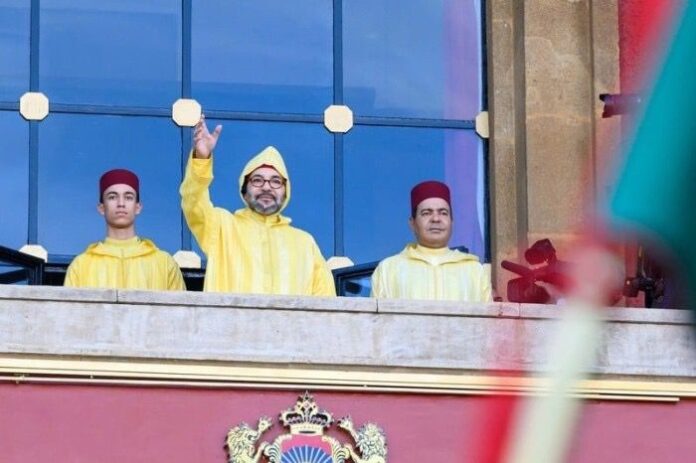By Eleni-Vasiliki Bampaliouta
King Mohammed VI presided, on Friday 13 October, at the opening of the first session of the third legislative year of the country’s 11th parliamentary term. His speech to the members of the House of Representatives and the House of Councilors was watched from the front seats, with special attention, as guests of honor, the managing director of the International Monetary Fund and the president of the World Bank.
The Moroccan ruler pointed out that “our guide is our strong will to take action to rebuild the country”, after the terrible earthquake that “hurt it, leaving behind thousands of victims and many injured, for whose recovery we fervently pray” , insisting “on the need to continue the aid and support to the affected families, to proceed at a rapid pace with the upgrading and reconstruction of the earthquake-affected areas, to ensure and immediately provide them with basic services”.

“Despite the magnitude of the disaster, he added, sadness and pain gave way to consolation and pride, judging by the spirit of mutual aid and solidarity towards the affected, which was demonstrated in various ways, with sincerity and spontaneity, both by the Moroccan people, inside and outside the borders, as well as the bodies of civil society”. The monarch also added that a valuable lesson from this tragedy is the finding that the authentic values of the Moroccan soul prevailed, “those that have always allowed our country to overcome crises and adversities and that continuously strengthen our determination to continue moving forward with confidence and optimism “, emphasizing that “this beautiful spirit, this noble ideal exists in all of us because it represents, for us, the fermentation of unity and cohesion of Moroccan society”.

The king underlined that he “always takes care of the protection of the family, inaugurating major projects and reforms in its favor”, making special mention of the plan to generalize social protection as “a key pillar of the country’s social and development model” and pointing out that at the end of the year the direct social assistance program will also be put into operation, which will allow the improvement of the standard of living of the target families, the fight against poverty and precariousness and, ultimately, the improvement of social and human development indicators.
He added that the corresponding “orientation was given to the government, so that the said program is implemented in accordance with a more general vision and with the provisions of the framework law on social protection, which has been approved by the Parliament”, and its implementation “it must be a model of success and therefore must be supported by the Single Social Register (RSU) targeting system and take full advantage of the potential of new technologies.”
The Moroccan ruler insisted on “absolute respect for the principles of solidarity, transparency and justice in the distribution of aid, especially for the benefit of those who deserve it”, calling on the government to prioritize the rationalization of existing social welfare programs, the guarantee of their effectiveness, as well as the sustainability of financial resources. “We insist on ensuring the good governance of the project, in all its dimensions. For this, it is necessary to put in place an ad-hoc monitoring and evaluation mechanism to ensure the best possible framework for development and continuous adaptation,” concluded the king.



